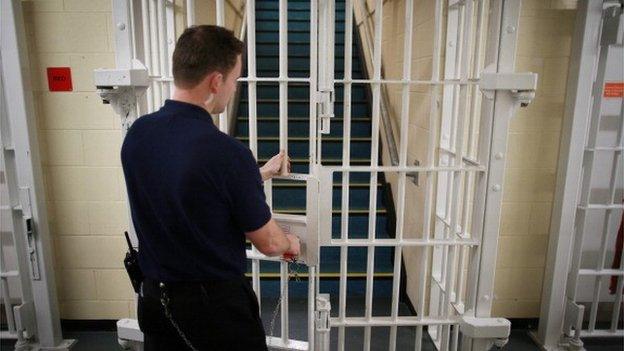Life inside Feltham: 'I saw people's heads stamped on'
- Published
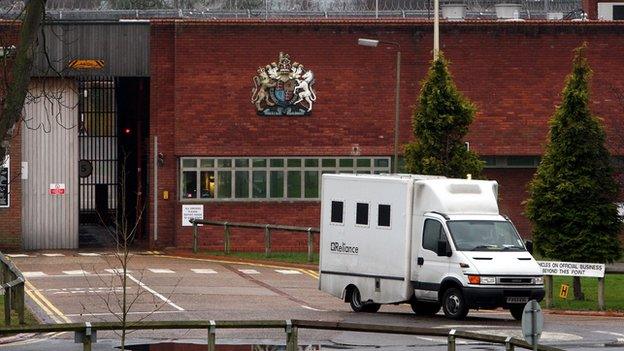
In the six months before the inspection there were 262 violent incidents
Prison inspectors have highlighted "serious concerns" at one of London's young offenders institutions, describing "unpredictable and reckless" violence.
Staff at Feltham in west London were constantly trying to keep apart boys from more than 40 gangs, a report, external said.
Inspectors found too many inmates were locked in cells for up to 23 hours a day, amounting to "solitary confinement".
The BBC spoke to three people with experience of life at Feltham.

The inmate: 'Oppressive, depressing, hopeless'
Laurence, from Somerset, was remanded in Feltham for a short time at the age of 20 after taking part in a political protest.
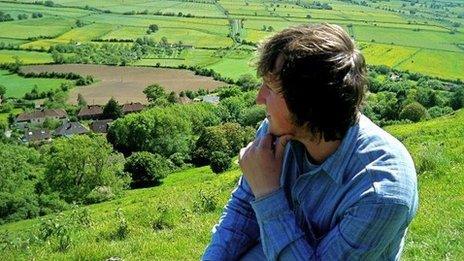
"I'd never been to jail before. I didn't know what to expect. I would describe it as oppressive, depressing, hopeless.
"They didn't let me have a shower or go outside for the first four days.
"There were some very vulnerable inmates, and no help for them - no counselling, nothing like that. You could speak to the priest or imam, but that was it.
"You couldn't sleep because you could hear banging and crying and screaming from other inmates.
"I remember one day the guards caught a kid with something he shouldn't have had. They took him behind a screen, and I heard screaming and banging.
"I wasn't involved in any gang stuff, but it was very obviously a problem.
"It's all geared towards punishment and managing the inmates, not rehabilitation. Inmates are set up to fail."

The guard: 'I couldn't cope'
One former Feltham prison officer, who wished to remain anonymous, told the BBC he had dealt with six or seven violent incidents a day.
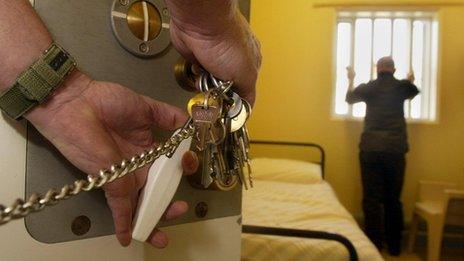
"I was regularly seeing inmates attacked with weapons - pool balls, pool sticks, anything they could get their hands on. It was not uncommon to see someone on the floor getting their head stamped on by a large group.
"To deal with situations safely we were supposed to have three officers to each person involved. In reality, it was usually more like one on one. I'm very surprised there wasn't loss of life.
"There aren't really any repercussions. The prisoners are in custody already. The only option we have is loss of privileges. There would be prisoners on 'basic regime' all the time, which means in confinement for 23 hours a day. But it has very little effect.
"One female colleague was knocked to the floor, and had her face stamped on and kicked.
"The psychological impact is the worst thing. My biggest fear was coming across self-harm and suicide.
"I wanted to work with young offenders because I wanted to make a difference. But more and more it's becoming a system where we just warehouse young people.
"I got to the point where I couldn't cope. To say there's not a crisis in our jails would be a lie."

The parent: 'I was more worried about him on the street'
Jennifer Blake's son spent time in several youth offender institutions, including Feltham. She herself is a reformed offender who now works with young people in Peckham, London.
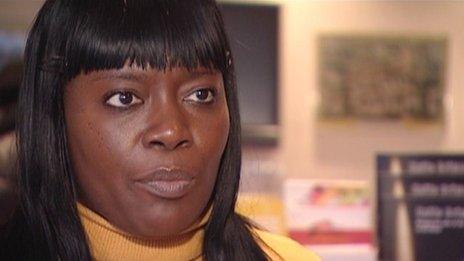
"My son got involved in criminality because of my lifestyle. He was involved in street crime - there was a group of them. He was 17 or 18 when he first went inside.
"On one hand, as a mother, I was gutted. I knew what prison was like. I cried a lot.
"But on the other hand, I'd had so many sleepless nights while he was outside. I was more worried about him being out on the street. I was thinking if he didn't go to prison, he might end up dead.
"I think for a lot of mothers like me, they're thinking, 'At least I know where he is.'
"And you have visiting rights. That might be the longest you ever spend sitting at a table talking face to face with your child.
"My son became a mentor, and started to realise, 'I shouldn't be in here.'
"Of course parents have a responsibility, but the criminal justice system also has a responsibility.
"They take your child from you and lock them up, so they have a duty to take care of them.
"But a lot of young people come out worse. They are educated in criminality, and some of them are radicalised."
- Published13 January 2015
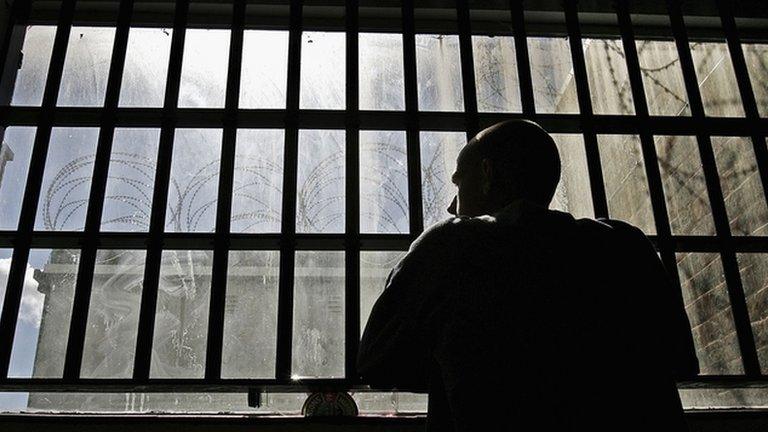
- Published13 January 2015
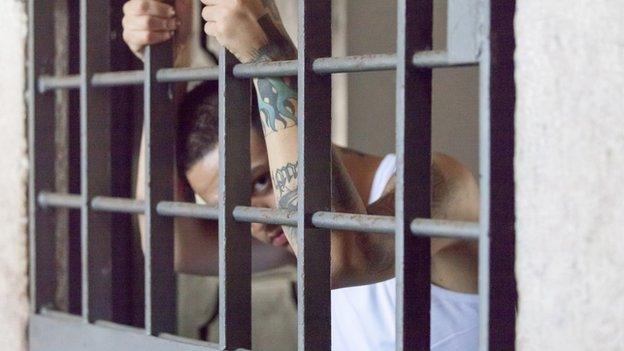
- Published16 November 2014
